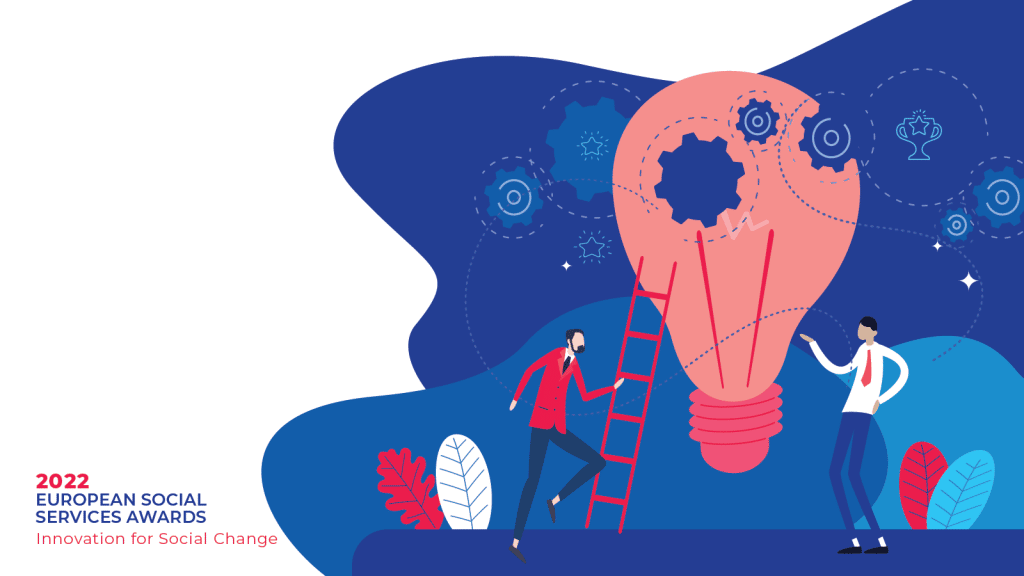
A key driver of social innovation is digitalisation and the development of new technology tools. On the one hand, this Award recognises technological and digital improvements that enable social services to improve their accessibility, usability by professionals and persons using services, and their availability for those in need. On the other, it recognises projects that promote choice, personal autonomy and enable people to remain in their own homes.

Local social services do not have the resources or sufficient personnel to work proactively with all inhabitants. Therefore, the Health and Care Department in Helsingborg developed a tool consisting of an innovative AI model that proactively identifies users at high risk of extensive future needs and individuals with the highest potential for rehabilitation. By forecasting the needs, targeted interventions can be implemented to reduce the needs of individuals, which makes more efficient use of the resources available. The tool also allows for the interventions to be evaluated consistently providing valuable data to be able to make strategic decisions about continuing funding for programmes.
People are often hesitant to seek mental health assistance over the phone. The service was also designed keeping in mind that youth would rather chat via text than call, thereby creating accessible mental health support. OLLI.chat is a free, live, online chat service, available in English & Maltese, 24 hours a day, through any web browser, available in any country.. It provides people who reach out with professional psychological, emotional, practical support and guidance in relation to their mental health with anonymity and confidentiality. OLLI.chat is a primary point of contact that can allow people to access more support locally or to be guided to services that may be beneficial. It also supports people who need acute care on how to access the services they may need. In the first calendar year, OLLI.chat served 3,412 unique chats and served people from different continents which is a great service launch for a country with a population of around 500,000.


Binti builds modern, mobile-friendly software to promote quality practice in child welfare and ensure that every child has a fair chance at life. Binti’s CEO Felicia Curcuru founded the company after seeing her sister struggle through the adoption process. She knew technology could empower agencies to close the gap between the lack of foster parents and the need for loving homes. Binti’s team of child welfare professionals and leading Silicon Valley engineers created a Software as a Service (SaaS) solution for families and agencies so that every child can have a safe home. With Binti’s practical tools, social workers save 20-40% of their time, focusing less on administrative paperwork and more on children and families. Binti averages 80% more families approved in 16% less time, increasing the availability of loving homes for youth in foster care.
In the context of the Covid-19 pandemic, Barcelona City Council piloted a remote service to reach out to citizens without the use of digital certificates through a video call service and provide them with the means to exchange documents with the City Council. During the second half of 2021, due to existing limitations in face-to-face care, the pilot project was launched in social services centres and the dependency care service of two Barcelona’s districts of the Municipal Institute of Social Services. 9 months after, the degree of use of this service has been analysed and has been positively evaluated by citizens.


Social workers in Hamburg requested portable technology solutions that would automatically carry out administrative tasks, provide all case details while at a client’s home, support all their legal governance requirements, including forms and checklists, and allow them to connect to Hamburg’s JUS-IT system in real-time. JUS-IT is the main software solution used in the youth welfare offices of Hamburg. The project aims to increase the efficiency and productivity of Hamburg’s social workers by providing technology solutions that remove daily administrative tasks and make social work more attractive by providing modern, easy-to-use solutions to help social workers do their job. A new app (JUS-App) on a mobile device (e.g. iPad) now enables all social workers in the youth welfare offices in Hamburg to access data, capture meeting details automatically, pre-populate forms, and enable audio/video recording while they are in direct contact with clients at their homes or with service providers in their facilities.
After experiencing a 58% rise in homelessness over five years, Maidstone sought to shift from crisis response to early intervention. Maidstone Borough Council together with EY and its technology partner Xantura created a data and analytics tool, OneView, which captures data from multiple agencies to identify residents at risk of homelessness. Using the tool, Maidstone proactively identified over 650 households at risk of homelessness and enabled interventions that kept people in their homes. This pioneering, replicable approach reduced homelessness by 40%, generated about £2.5m in overall societal savings and produced a 192% return on investment for Maidstone. It also reduced administrative task time by 61 days, freeing frontline workers to focus on direct services to people in need.

